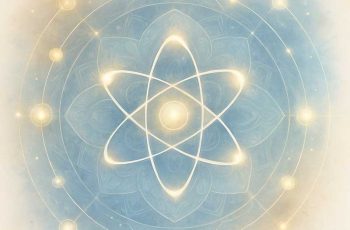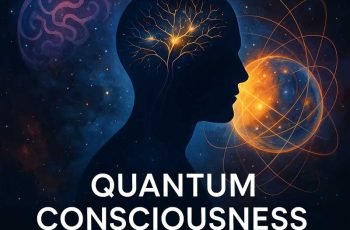Intuition has fascinated philosophers, scientists, and spiritual seekers for centuries. It’s that subtle inner signal that seems to know before we do. But is it magic, or is there a logical explanation hidden in our biology and brain chemistry?
Why We Question Intuition
For centuries, humans have relied on an unexplainable sense a quiet inner voice that often whispers before the mind catches up. Some call it a gut feeling, others the sixth sense. But in the age of data, we ask: Is there real science behind intuition?
2. What Is Intuition, Scientifically Speaking?
Intuition is often described as knowledge without conscious reasoning the ability to make accurate decisions without logical analysis.
From a neuroscience perspective, intuition arises when the brain draws from past experiences and subconscious pattern recognition to produce a rapid judgment.
It’s not magic. It’s fast thinking, built on hidden neural processes.
3. The Gut-Brain Connection
Ever felt something “in your gut”? Science backs this up:
-
The enteric nervous system — often called the “second brain” — contains over 100 million neurons in the digestive tract.
-
The vagus nerve is the communication superhighway between your gut and brain.
-
Neurotransmitters like serotonin and dopamine are heavily produced in the gut, influencing mood and perception.
This means your gut feeling is literally connected to your nervous system and emotional responses.
4. The Role of the Subconscious Mind
Your subconscious mind stores memories, patterns, and micro-details you don’t consciously notice.
When you face a decision, your brain cross-references this vast database in milliseconds — sometimes faster than conscious reasoning could manage.
This explains why experienced professionals often make quick, accurate calls without needing to “think it through” in a traditional sense.
5. Can Intuition Be Measured?
Neuroscientific studies use tools like fMRI and EEG to observe the brain during intuitive decision-making. Findings show:
-
Increased activity in the anterior cingulate cortex and insula — areas linked to emotional awareness and error detection.
-
Physiological signals, like changes in heart rate or skin conductance, often occur before conscious awareness of a decision.
6. The Sixth Sense and Beyond Science
While science explains much, many argue intuition can tap into something more — a field of inner knowing beyond data and memory.
Spiritual traditions view intuition as a bridge to higher consciousness, an antenna for universal energy, or even ancestral memory.
Here, the science of intuition blends with the mystery of the soul.
7. How to Sharpen Your Intuition
Whether you see it as neural pattern recognition or spiritual guidance, you can train your intuition:
-
Mindfulness meditation: quiets mental noise so subtle cues stand out.
-
Body awareness: noticing tension, warmth, or chills as intuitive signals.
-
Journaling: recording intuitive hits and their outcomes to build trust.
-
Limiting information overload: intuition thrives in mental clarity.
8. When Intuition Gets It Wrong
Biases, fears, and unresolved trauma can distort intuitive signals.
If your “gut feeling” comes with anxiety, judgment, or urgency, it might be more about fear than true inner knowing.
Balancing intuition with reason helps prevent misinterpretation.
Science Meets Soul
The science of intuition shows that our gut feelings are real, rooted in the intricate dance between brain, body, and subconscious.
Yet, there’s still a dimension science hasn’t fully mapped, the poetic, mysterious sense that sometimes guides us toward exactly what we need.
Perhaps intuition is both: a biological gift and a spiritual compass.
FAQ -The Science of Intuition
1. Is intuition just a subconscious process?
Not entirely. While neuroscience explains much through subconscious pattern recognition, many believe intuition can also be a form of extrasensory perception.
2. Can intuition be scientifically proven?
Science has measured physiological and brain activity linked to intuition, but cannot yet fully explain its accuracy in all cases.
3. Is gut feeling always right?
No. Intuition can be clouded by fear, bias, or misinformation. Awareness and self-reflection improve its accuracy.
4. How do I know if it’s intuition or anxiety?
Intuition is usually calm and clear, while anxiety feels urgent and tense.
References
-
National Institute of Mental Health. The Brain and the Nervous System.
More soul, more stories, right this way:


